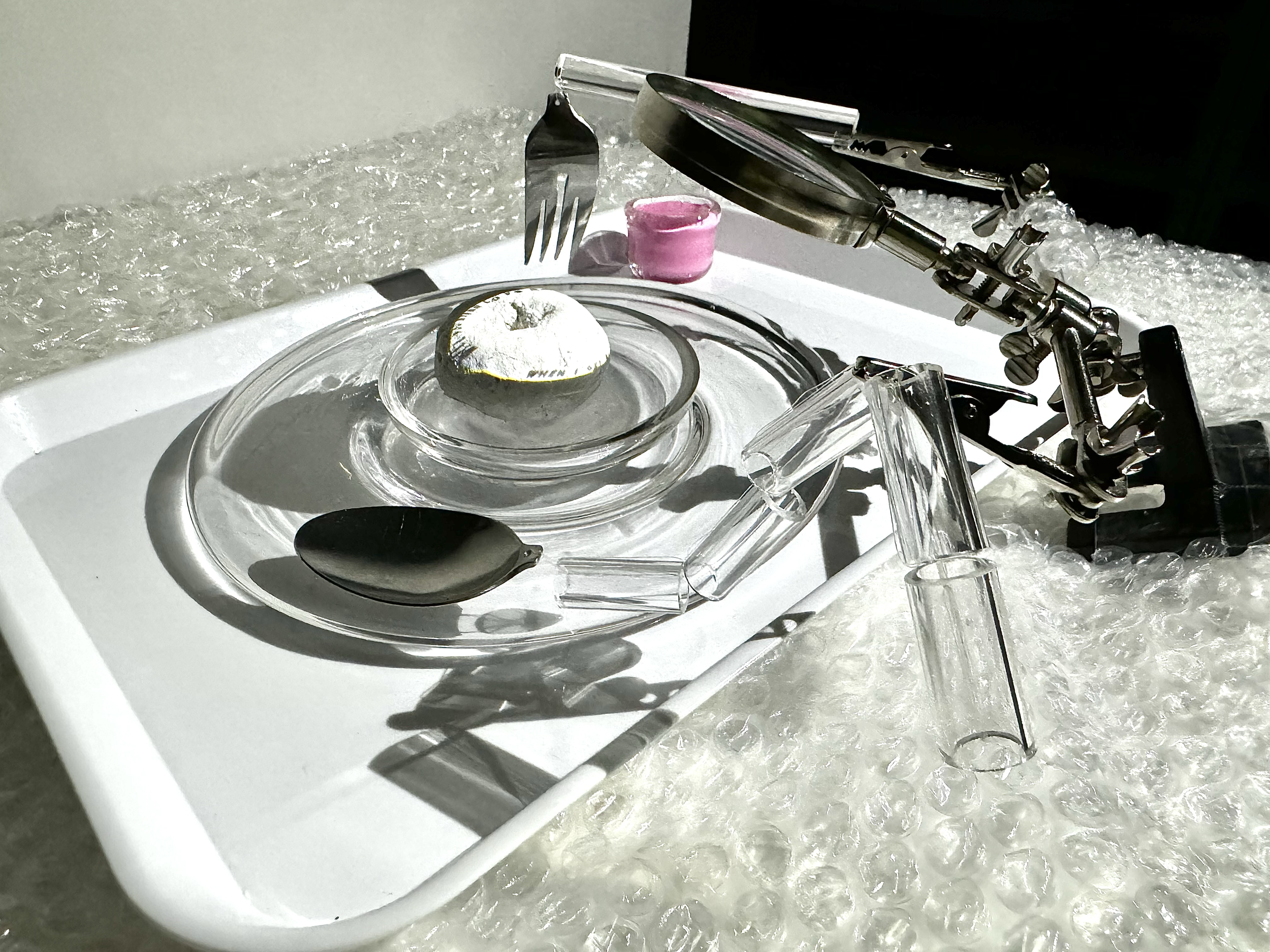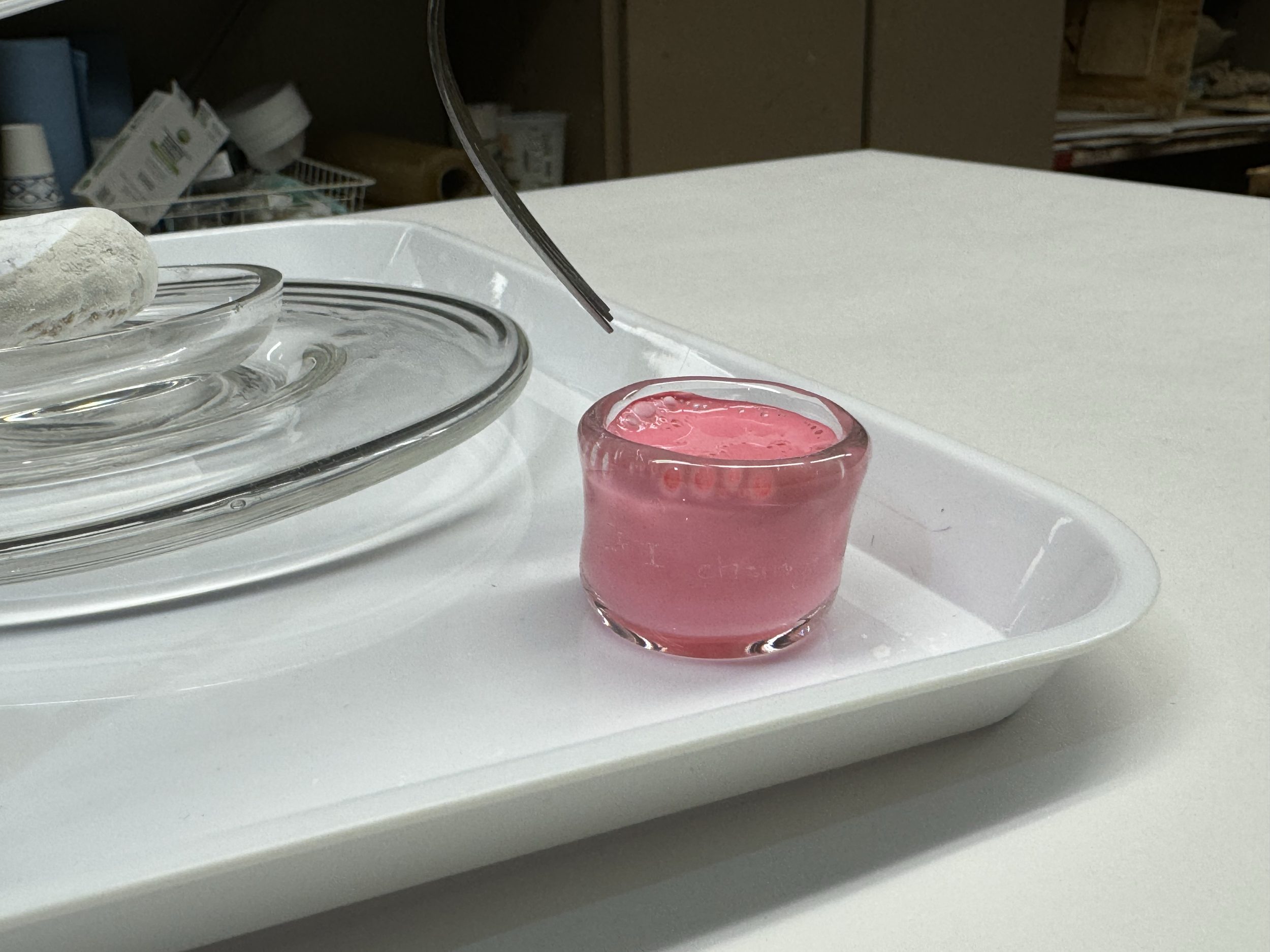
When I Get Bigger
2024
Walk with me for a moment.
You’re a shy eight-year-old girl sitting at the kitchen counter with your best friend at her house. Her mom had picked you up from school because your favorite person (your mom) is on a business trip, and your dad is stuck in after-work traffic. Your friend’s mom slides a plate across the counter, and it’s a plate that looks completely different than the ones you have at home. The plate is thick, heavy, dark blue glazed ceramic. On the plate is a large serving of mashed potatoes drenched with gravy. You can’t get up to call your mom to ask if the mashed potatoes with gravy will make you sick because she’s busy on the other side of the country. You’ve known this friend and her mom for years, but you can’t work up the courage to ask for something else. You would’ve been forced to explain that you don’t trust her food nor what it’s presented on, so you simply say, “I’m not hungry” and hope the meal is over soon. Your friend clears her plate, and you run away a happy kid because you avoided a potentially life-threatening incident.
As you play outside, you hear your friend’s mom talking to someone about your body in comparison to her daughter’s. You’re then asked, “Do you eat at home,” and you simply answer, “Yes!” You had drawn this comparison yourself because everybody seemed to like your friend more than you. Her hair was shorter, so you cut your long blonde hair alone in a bathroom to be more like her. She just got glasses, so you pretend to need some only to be told your vision was perfect, so you couldn’t be more likable than your best friend. The basic human functions are already challenging, and you have no idea that your friends aren’t struggling like you. Their hair length, the food they ate, and the clothes they wore were decided out of preference, not comparison and fear.
A little while later, you exhale as you arrive at home where your trusted chicken nuggets, butter noodles, and bananas live. The only issue is mom still isn’t there. “What am I supposed to eat if mom can’t approve it first,” goes through your head. You start to feel nauseated but can’t quite figure out if it’s because you haven’t eaten or it’s because of something you DID eat much earlier that day. The solution…Gaviscon (a liquid anti-nausea medicine). You drink whatever dose your stomach will allow and hope that you will start to feel better. Acid is climbing its way up your throat while the minty medicine film is still in your esophagus and mouth. “A banana!! Try eating a banana!” You feel a bit better, but you won’t push the limits. A banana and fighting to go to sleep will reset your hunger and food aversions but you wake up periodically thinking you’re going to throw up and want nothing more than your mom.
This daily cycle doesn’t add up to an eating disorder in your little brain. You know you’re different than your friends, but you have no idea truly how different you are. You don’t want to be abandoned, so you try to be someone you know who hasn’t been. Nobody was leaving you forever, but the ground beneath you felt unstable every second of every day. This manifests into a fear of loud eating environments, abusing anti-nausea medications, attending sleepovers, gigantic portions of food, a fear of condiments, and anything new in general. These struggles will not be diagnosed with Avoidant Restrictive Food Intake Disorder until you are twenty-two years old, and you have no idea if you’ll make it to twenty-three but hey…you managed to make it past eight (and you'll be turning twenty-four soon).






Glass rondel (blown/cold worked by me)
Glass petri dish (blown/cold worked by me)
Glass silverware (sourced metal silverware, blown/cold worked handles by me)
Medicine cup (blown/cold worked by me)
Plastic tray
Magnifying glass
Decal letters
Flashlight
Microphone stand
Donut
Tepto Bismol
Bubble wrap